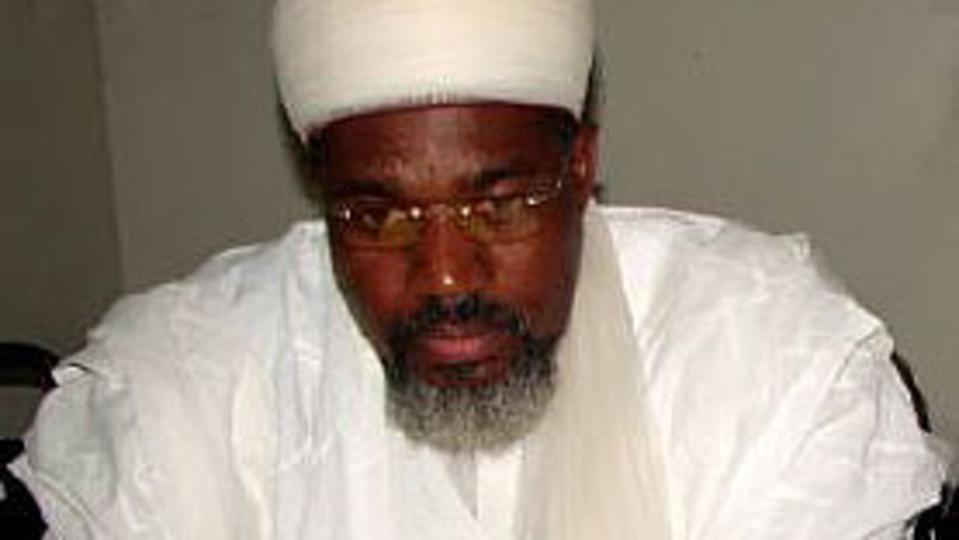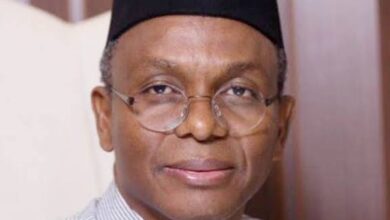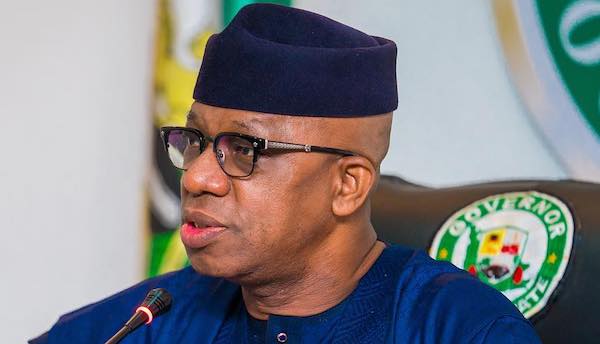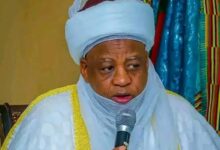Why FRC laws shouldn’t be anybody’s problem – Sheikh Ahmad

*Says no hiding under religion to evade tax
*’It is reckless to read religion in to the law’
The National Missioner of the Ansar-Ud-Deen Society of Nigeria, Sheikh Abdul-Rahman Ahman, has made his own contribution to the ongoing discussion of the Financial Reporting Council of Nigeria codes with regard to how they affect the religious organisations.
The reputable Islamic scholar and broadcasting journalist cleared the air on whether or not it was right for government regulate religion, saying religious leaders are answerable to God and the government.
Sheikh Ahmad, who was talking to the Punch in Lagos, warned against those spreading the embers of hate who said the Financial Reporting Council’s regulations were specifically targeted at churches, adding that it was reckless for anybody to think like that.
He found it ridiculous that a law that was enacted during the administration former President Goodluck Ebele Jonathan at a time a Christian in the person of Senator David Mark was the Senate President and nobody complained was now being cried about to be targeted at the churches. That thought, the prominent cleric expressed dismay, was unreasonable, saying it was satanic to read religion into the codes.
“Arguments or thoughts like that are very reckless, illogical and unfair. I am not a political apologist and I do not belong to any political party. This was a law that was enacted and passed during the administration of former President Goodluck Jonathan when a Christian, Senator David Mark, was the Senate President.
“At the time the law was passed nobody said anything; there was no complaint or call for public hearing. There was no apparent criticism of the regulations. It is now only when the implementation was about to start that people are now saying various things.
“It is satanic to read religion into the codes. Let us look at the fact of the matter; there is the need for transparency and accountability where public funds are involved. In churches and mosques, and churches to a very large extent, public funds are being expended.”
It would recalled that some churches in the past were accused of harboring money allegedly siphoned and kept with them by corrupt public officers.
For the reason alone, so many Nigerians had complained that government should do something which, probably, led to the regulations of the finances of religious places, even the mosques.
To that extent, Sheikh Ahmad decide to be blunt saying that, “It is common knowledge that some of these churches are super-rich with their total worth running into billions of naira, even billions of dollars. Some of them also have businesses. If they are involved in businesses, running universities and expensive secondary schools among other business ventures, then it is only fair for them to be taxed as other Nigerians are taxed.
“Religion should not be a shield and nobody should hide under the cover of religion to evade tax. Also, it is said that every Sunday there are a number of bullion vans that go to certain churches to take up offerings (money contributed by congregants) and that’s a lot of money.
“It is not a bad idea at all that the government should look into this money. It is charity; even funds of charities should be scrutinised. It should be seen that people are giving freely because they are cheerful givers and the question is: is the money used for the purpose it is meant for?
“I don’t think that should create any problem for either the mosque or the church. It is about transparency. It is about accountability. It is about responsibility,” he said, however adding that, “The only area that may appear contentious (in the FRC codes) is when government wants to directly regulate the administration of religions; that will be contentious.”
On whether he thought the government wanted to directly regulate the administration of religions, Sheikh Abdul-Rahman Ahmad, accusing some Nigerian critics of deliberately choosing to forget things selectively, reminded them that, “it is this same law that prevented some select families from controlling banks; that banks should not be a financial empire controlled by some families, holding the public to ransom.
“Of course,” he continued, “some of these mega religious houses have higher net worth than manufacturing firms and they are usually owned and controlled by the father, wife and the children. They are the virtual owners of everything. Some of these religious houses have universities and they charge outrageous fees.”
“We have been told that the aim of the law is to forestall the creation of a family religious financial empire, as it was happening in the banks some years ago. Nigerians can choose to forget things selectively,” he said.
He explained why any religious organization either making huge sum of money or doing business should pay tax.
He said, “They have some of the most expensive universities in Nigeria. These universities were built from public funds. Therefore, the government should be concerned about how public funds are being expended by religious organisations.
“I don’t see anything wrong with that. It does not appear as witch-hunt. But if it appears Christians are more affected, to me, it is because this is a matter that concerns Christianity more than Islam. There are no super-rich Muslim organisations – I am not aware of any. I am not exonerating Muslim organisations. If there is any super-rich Muslim organisation, then same rules should be applied to it.
‘The only area I have issue’
“What I think, however, is that the (leadership) succession, the internal administration of religious houses must be left to the religious organisations concerned, governed by their constitutions and by the consensus of the agreement of the people. It will be counter-productive for government to seek to manipulate the leadership of religious houses by determining the tenure (of the founder or leader). I think that’s the only part I found in the regulations to be wanting.
“I think that is very reasonable. For example, we do not have that kind of problem in Islam and in Muslim organisations. So if you say anyone who is above 70 years or has spent 20 years – whichever comes first – should not be a member of a religious organisation’s board of trustees, that’s fine, at least you create opportunities for others. But if you say someone should not continue to be general overseer for more than 20 years, it is interference and that is bad and unnecessary.
What must not be allowed to stand
“There are churches where administrative and spiritual leadership or authorities are combined. A general overseer is the spiritual leader, administrative head, financial controller, and the chief executive officer; sometimes he is the treasurer.
“There is one individual like that who said he received a revelation from God to increase school fees and that anybody who was opposed to that would be dealt severely by God. Of course, we cannot allow things like these to continue,” the cleric said.









